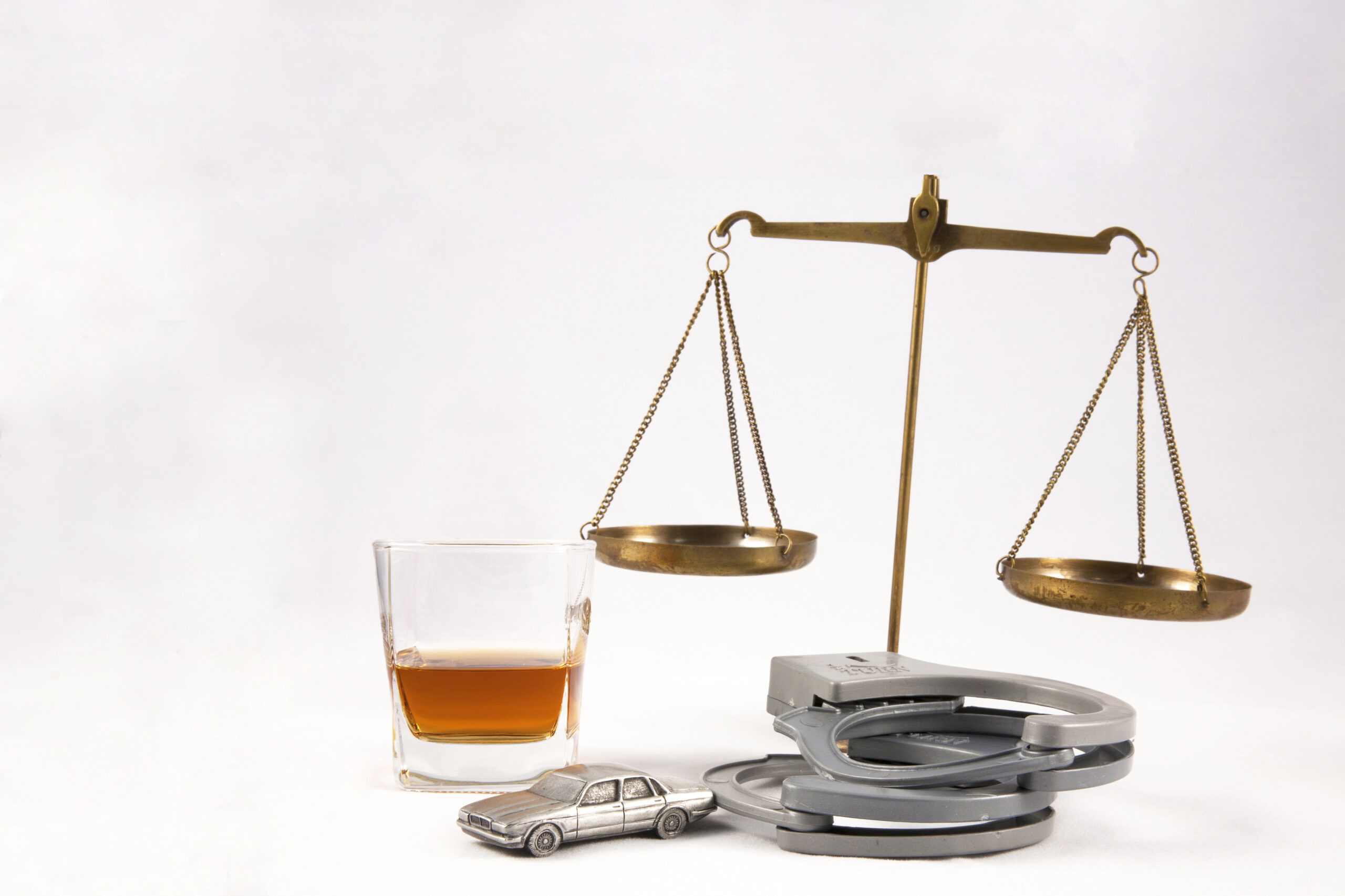
What You Should Know About DUI Laws and Penalties in Florida
Operating a motor vehicle while under the influence has severe consequences. Driving under the influence of alcohol increases the risks of getting into a motor vehicle collision. The consequences of causing an accident while driving after drinking can impact you and your family for the rest of your life. Because drinking and driving pose a risk for everyone on the roadways, Florida law views the act as a serious offense.
What are DUI and drunk driving?
DUI is the abbreviation for “driving under the influence.” A person is guilty of the offense if they are driving or in actual physical control of a vehicle within the state and the person is under the influence of alcoholic beverages or any controlled substance set forth under the appropriate statutes when affected to the degree that his or her normal abilities are impaired or when the person has a blood-alcohol level of 0.08% or higher. “Drunk Driving” is a common misnomer of driving under the influence. While all individuals who drive while drunk are D.U.I., you do not need to be drunk to be considered under the influence.
What does “In Actual Physical Control of a Vehicle” mean?
This term means that the individual has had the ability to direct or regulate the vehicle, regardless of whether or not they were exercising that capability at the time of the alleged offense. More simply put, sitting behind the wheel with keys in the ignition may qualify as being “in actual physical control” of a vehicle even though it is not moving.
Are you presumed guilty if you have a blood-alcohol level of 0.08%?
In any criminal case, it is unconstitutional to hold a presumption of guilt against a defendant. This is because our constitution requires the government to prove its case beyond and to the exclusion of every reasonable doubt. However, when the defendant had a blood-alcohol level of 0.08% or more is evidence that the defendant was under the influence of alcoholic beverages to the degree that their normal capacities were impaired.
What is the penalty for a first time DUI in Florida?
We know that the careful handling of first time DUI charges will have a crucial impact on your life, and the responsible hiring of a skilled Florida DUI lawyer may be one the most important decision you can make.
Florida DUI Penalties for a First Offense Conviction
Fines:
- Blood-alcohol level tested 0.08 or higher: Your fine will be $500 or greater, up to $1000.
- Blood-alcohol level was greater than 0.15, or you had been driving with a minor in the car while under the influence: The minimum fine is increased to $1000 with the highest penalty being $2000.
Jail Time:
- A blood-alcohol level of 0.08: Imprisonment could range from at least 8 hours up to 6 months.
- Blood-alcohol level was greater than 0.15, or you had been driving with a minor in the car while under the influence: Maximum jail time is increased to up to nine months.
Additional Penalties:
- Mandatory 50 hours of community service; in some cases, the court may order payment of an additional fine of $10 per hour of community service.
- Probation up to one year.
- The vehicle will be impounded for 10 days.
- Driver’s license revoked for no less than six months up to one year.
Also, any DUI charge involving serious personal injury or death may be charged as a felony DUI.
With every case, we set out with the goal of having your case dismissed or reduced. At Matthews and Jones, we immediately take action to protect you. Christa Diviney, our accomplished Florida criminal defense lawyer, will thoroughly examine the evidence surrounding your case for weaknesses in the test results, faulty police or other law enforcement procedure, and any violations of your constitutional rights.

What are the Florida DUI penalties if you have prior DUI convictions?
Many factors can affect the severity of punishment for Florida DUI convictions, such as your blood-alcohol level at the time of arrest, if the DUI involved a collision with injuries or fatalities, prior DUI convictions, the presence of a minor in the vehicle, open containers, or even what you say to law enforcement at the time of the arrest.
The following reference is to help you know the serious nature of Florida’s DUI penalties, including penalties for minimum and maximum fines, jail time, driver’s license suspension, probation, criminal record status, vehicle impoundment, questions such as how long does a DUI stay on your record in Florida or can you drive after a DUI in Florida, and other requirements such as community service and DUI school.
Second Florida DUI Conviction:
- Minimum fine of $1000 up to $2000. If your blood-alcohol level was 0.15 or more or you had been driving with a minor in the vehicle – the minimum fine is $2000, up to $4000
- Imprisonment up to 9 months. If the blood-alcohol level was over 0.15 or the DUI resulted in an accident or crash, jail time is increased to one year. The court may allow jail time to be served in a treatment program
- Mandatory imprisonment for no less than 10 days if your 2nd DUI conviction occurs within 5 years of the date of a prior DUI conviction
- 180 days to 1-year probation.
- Maximum 5-year driver’s license revocation
- Up to 30-day vehicle impound
- Ignition interlock device
- Florida DUI school (multiple offender) and discretionary alcohol treatment
- A criminal record stating Adjudication of Guilt
- Financial restitution if DUI involves an accident, property damage, or personal injury
Third Florida DUI Conviction:
- Fine of $2000 up to $5000. If your blood-alcohol level was 0.15 or more, or if you had been driving with a minor in the vehicle – the minimum fine is $4000
- Up to 5 years of imprisonment in state prison. If the 3rd DUI is within 10 years of a previous DUI conviction, a mandatory minimum of 30 days in jail
- Up to 10 years driver’s license revocation
- Vehicle impounded up to 90 days
- Ignition interlock device
- Florida DUI school (multiple offender) and alcohol treatment
- A permanent felony conviction on your criminal record if 3rd DUI is within 10 years of previous DUI
- Financial restitution if DUI involves an accident, property damage, or personal injury
- Up to 50 hours of community service or a fee of $10/hour per hour of service
Fourth Florida DUI Conviction (or more):
- Minimum fine of $2000 up to $5000
- Up to 5 years of imprisonment in state prison
- Up to 5 years’ probation
- Lifetime driver’s license revocation
- Vehicle impounded for 90 days
- Ignition interlock device
- Florida DUI school and alcohol treatment
- A permanent felony conviction on your criminal record
- Financial restitution if DUI involves an accident, property damage, or personal injury
- Up to 50 hours of community service or a fee of $10/hour per hour of service
Can I refuse to take a breath, blood, or urine test if requested to submit to one by a law enforcement officer?
By accepting the privilege extended by the Florida laws of operating a motor vehicle, you are considered to have given your consent to submit to an approved test to determine the blood-alcohol level and to a urine test to detect the presence of drugs, if lawfully arrested for any offense allegedly committed while driving or in actual physical control of a motor vehicle while under the influence of alcoholic beverages or chemical or controlled substances.
You may refuse such tests unless you are involved in an accident concerning serious bodily injury or death to a human being. However, refusing such tests is not without cost. Florida law permits the Department of Highway Safety and Motor Vehicles to suspend your privilege of operating a motor vehicle for a period of one year for a first refusal or eighteen months for a second or subsequent refusal.
Additionally, the refusal to submit to a chemical or physical breath test, or a urine test, upon a law enforcement officer’s request is admissible in any criminal proceeding against you. If you have refused to submit to a breath, blood, or urine test, a second or subsequent refusal to submit to such testing is a misdemeanor offense.
How can the law permit suspension of a driver’s license before any kind of trial? I thought criminal law required a hearing or trial before they could sentence you?
While criminal punishment under Florida law provides certain safeguards before an individual may be sentenced, it is important to remember that driving a motor vehicle is a privilege, not a right. Since it is, in fact, a privilege, the State of Florida may withdraw your privilege if it has lawful grounds to do so. This suspension is subject to a hearing if one is requested by the driver or their attorney within ten days of the arrest date. We strongly suggest you contact Matthews and Jones immediately in order to request a review hearing promptly.
What is the best way to avoid getting a DUI?
We encourage everyone to anticipate driving needs in advance so they do not find themselves drinking and driving under the influence. We recommend designating a driver, calling a cab or other transportation service, or even walking.
Contact an Experienced Florida DUI Lawyer Today
First time DUI offenders need a Florida DUI lawyer who will step in to help them get their case dismissed and ultimately expunge the case from their criminal record forever. Christa Diviney of Matthews and Jones has significant experience with criminal defense law and will help guide you through your case.
Don’t settle for anything short of an expert DUI defense. Contact Matthews and Jones to speak with a Florida DUI lawyer who knows the law, has a proven track record of successful criminal defense in Destin, Niceville, Santa Rosa Beach, and Florida’s Emerald Coast. We can help.





